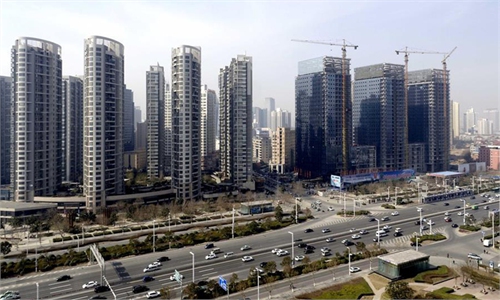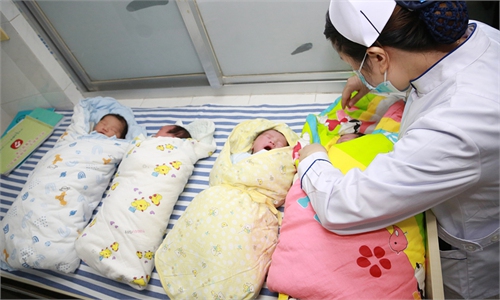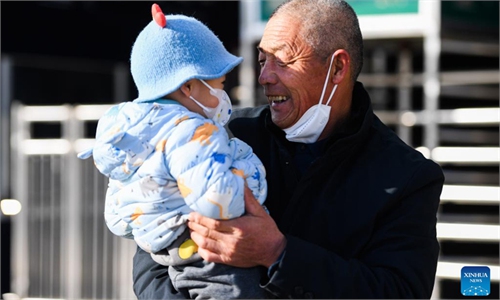
Illustration: Liu Xidan/Global Times
At that time, I returned to China from the US for vacation, and at the post-holiday party, an old reporter described his feelings about going home for Chinese New Year: "In the past, it was 'what we ate was what we had,' but now it is 'what we want is what we eat.'"
That was the year 2002, not long after China joined the WTO and entered the tide of economic globalization.
During the reunion with my family, I felt they had a sense of eagerness for their future lives that they had never had before. The talk at the Spring Festival dinner table was either about whose salary had increased or who was preparing to buy a house or a car, the younger generation was planning to change to a more suitable job, and what the old people talked most was "you still have to work hard."
Conversations at the family dinner table often reflect the most realistic public sentiment in China.
Before this year's Spring Festival, I thought the conversations would be about the epidemic, but what I didn't expect was that with the current wave of COVID-19 infections coming to an end, conversations among family and friends returned to an atmosphere of anticipation.
Just like 20 years ago, the theme always revolved around the future - how to have more stable jobs, more income and give the next generation a better education... There were complaints, concerns and arguments at the dinner table, but the talk was more about opportunities, opportunities for economic growth unleashed after the epidemic. 20 years later, the younger generation in the family has grown up, and in their pursuit of life, the deep imprint of the traditional Chinese view of the family can still be seen.
The family is the cell of society, and what each family expects is what the whole society expects.
China is still a developing country, with thousands of families in the development stage. We no longer expect sudden progress, but are pursuing a steady march forward. To live a richer, more stable life, the generation that has taken on family responsibilities knows that they must work harder and hold on to the opportunities of a fast-moving economy, just like their fathers and mothers did.
The family has been central to China's development. As people strive for a better life, they are also driving the economic transformation that has irreversibly changed people's expectations for the country's development and their individual futures.
Why do Western experts who predict that China's economy will decline and collapse always miss the mark? Because they often underestimate or simply do not have a deep understanding of Chinese values and family values.
Predicting the future of China's economy is not only about the system and the companies, but also about the aspirations and expectations of hundreds of millions of ordinary Chinese people and their willingness to make more efforts for a better life for their families.
For more than 40 years, it is these ordinary Chinese people who have created today's Chinese economy through hard work and struggle. They and their next generation are the creators and beneficiaries of the country's development, as well as the powerful forces driving China forward in the direction established since the reform and opening-up.
The Chinese New Year is not only about red lanterns, lion dances, firecrackers and fireworks, but also about family reunions as well as the expectation of a blossoming spring and a bountiful harvest.
In today's world, the scarcest thing is certainty, and experts are struggling to find it, but I see from this year's Spring Festival family reunions that certainty is actually in every family.
The expectations of hundreds of millions of Chinese families for the future decide the direction of this country's development.
The author is a senior editor with People's Daily, and currently a senior fellow with the Chongyang Institute for Financial Studies at Renmin University of China. dinggang@globaltimes.com.cn. Follow him on Twitter @dinggangchina




